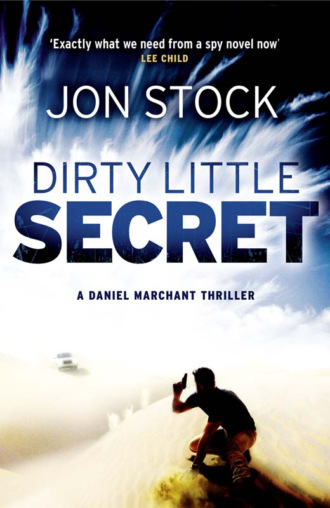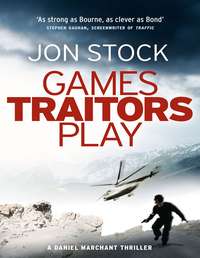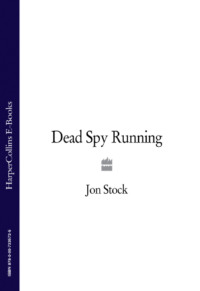
Полная версия
Dirty Little Secret
‘I helped you in the restaurant because I believe we won’t win by force alone,’ she eventually said, for her own benefit as much as his. She turned towards him, resting her broken wrist on his chest. The cast trembled against his skin. ‘There are other ways of winning the war on terror. I despise Spiro, his brutal approach to intelligence-gathering.’ She paused. ‘And I did it because I wanted to be with you. You do know that?’
Marchant turned towards her. ‘I’m very grateful.’
‘What’s going to happen to us? To you?’
‘It doesn’t look good. An MI6 officer apparently defects to Moscow only to show up in a hostile Russian plane with Salim Dhar. Without Fielding to protect me, I’m buggered.’
She thought again of Spiro, his instructions to find out more, and swallowed hard.
‘Why didn’t you kill him?’ she asked, as if it was the most natural question in the world. But she knew it sounded forced. She was no good at this any more, not with someone she loved.
‘Dhar? You haven’t asked me that before.’
‘I know you can’t tell me everything, Dan, but you never talk about him, the whole half-brother thing. Is that why you wanted the Russians to take you? And why you didn’t kill him?’
But Marchant didn’t answer.
9
Dhar knew it was a risk taking the pilot with him, but he might be useful in the hours ahead. For a few brief seconds, watching the blades spin down in a remote corner of Cotswold Airport in Kemble, he had considered shooting him, but again a calm voice in his head had urged restraint. Instead he had bound his wrists with a bandage, taped his mouth with a roll of plaster and told him he was dead if he tried anything.
They were now walking in the darkness towards the perimeter fence in the north-east corner of the airfield, the pilot leading, Dhar limping behind. In his left hand he held a set of bolt cutters he had found on the helicopter, stored with other safety equipment. He had ordered the pilot to head for Kemble because it was less than two miles from Tarlton. When he was being trained to fly in Russia, he had often studied this area on a map, wondering if, one day, he would ever get to see the home where his father had lived. That moment was now approaching.
Dhar glanced at his watch as they reached the fence. Time was not on his side. Air Traffic Control had twice tried in vain to contact their helicopter during their approach to Kemble. A wider alarm might not have been raised by their failure to respond, but it was a risk. A more worrying call had come in from Search and Rescue’s regional headquarters at RAF Valley in Anglesey, which they had also ignored. The only good news was that the control tower at Kemble was deserted, just as Dhar had hoped. Kemble had no licence for night use.
Dhar told the pilot to stand with his face to the fence. Again, he wondered if it would be easier to shoot him. He pulled out his gun and pressed it against the back of the man’s head, suddenly impatient. What was he doing, dragging this kafir with him? For a few long seconds he thought about squeezing the trigger. The pilot looked down, preparing himself for death. He was composed, Dhar had to hand it to him. He hadn’t panicked when Dhar had first appeared behind him in the cockpit, hadn’t flinched with a gun to his head, unlike his craven co-pilot. Dhar loosened the bandage around his wrists and handed him the bolt cutters.
The pilot knelt in the wet grass and cut away at the bottom of the wire mesh, watched by Dhar. Once he had finished, Dhar tossed the cutters into the undergrowth and pushed the pilot through the gap with his gun, following after him. For a while the vodka had numbed the pain, but it was excruciating as he crouched down. When the pilot was a few feet ahead of him, Dhar took a swig from the Stolichnaya and slid the bottle back into his jacket. It was medicinal, he told himself, but he knew it was more than that. His life, so ordered up until now, was slipping out of control.
Two minutes later they were standing beside a main road, hidden in the shadows of a dirty lay-by. The road was empty, but Dhar could hear the distant sound of a car. If the pilot was going to try anything, now was the time. Dhar pressed the gun into his back and waited as the vehicle’s headlights swept round the corner. It was a solitary police car, driving fast, blue light flashing, but no siren. Instinctively he grabbed the pilot’s arm and pressed the gun harder into his back as it drove past them. He told himself to relax.
Once the road had cleared and the night was quiet again, Dhar pushed the pilot forward. Somewhere in the dark woods up ahead, an owl hooted. It was only one mile to Tarlton.
10
‘I need to know why Marchant was in the cockpit with Dhar,’ Ian Denton said, sitting back in Marcus Fielding’s official Range Rover. ‘At least, I need to know what I can tell the Americans.’
Although Fielding lived in Dolphin Square, he had offered to give his deputy a lift to his home in Battersea after the COBRA meeting. It was out of his way, but he owed him an explanation, and this was their first proper opportunity to talk. There was no anger in Denton’s voice – quiet, with a drop of Hull – no indication of any resentment at having been excluded. As far as Fielding knew, Denton had never objected to MI6’s tradition of need-to-know, its culture of compartmentalised knowledge. Even as deputy, he wouldn’t expect to be informed of every operational detail. But there was a new-found confidence in his manner, a lack of deference that made Fielding wonder if the Foreign Secretary had already offered him his job.
‘We knew the Russians were shielding Dhar,’ Fielding said as his Special Branch driver, separated from them by a soundproof glass divide, turned right onto the Embankment. ‘The only way to get to him – and to stop whatever atrocity he was planning – was to persuade the Russians that Marchant wanted to defect. You’ll understand why I could tell no one at the time. Nikolai Primakov, Moscow’s cultural attaché in London, had agreed to work for us again. He had access to Dhar, and acted as our middle man.’
‘Just like old times, then.’
‘Quite. Primakov likes working with Marchants.’
For the first time, Fielding detected a trace of bitterness in his deputy, the Hull accent less suppressed. Marchant’s father, Stephen, had recruited Primakov in Delhi in the 1980s. It had been a game-changing signing in the Cold War, as good as Oleg Gordievsky, and had fast-tracked Stephen to the top of MI6. Denton, then a young officer in the SovBloc Controllerate, was the contact man, clearing the dead-letter drops and trying – in vain – to keep Primakov sweet. The two men had not warmed to each other.
‘As far as I can recall, we never got round to telling the Americans about Primakov,’ Denton said.
‘No, and I would ask you, in your new role, that it should stay that way.’
The last thing Fielding needed was some CIA goon going over the Primakov files.
‘That could be a problem. As part of our efforts to rebuild trust with Washington, we’ve agreed to an independent investigation into the events at Fairford and Cheltenham. It’s no secret that the Americans want to throw the book at Marchant and Lakshmi Meena.’
‘Then it’s up to us to protect them, isn’t it?’
Fielding had expected a witch hunt. Top-down, no stone left unturned, the usual Whitehall hysteria: craven civil servants running around doing the Americans’ bidding. It was why he had sent Marchant and Lakshmi to Fort Monckton. They would be safe there, at least for the time being.
‘What the Americans are struggling to understand – and I see their point – is why Marchant didn’t eliminate Dhar.’ Fielding thought Denton looked increasingly at home in the Range Rover, sitting back, at ease, elbows out, his sinewy body expanding with new authority. In the past, he had never relaxed when Fielding had given him a lift, perching on the buttermilk leather like a watchful lizard. ‘Once he’d won his trust by defecting,’ Denton continued, ‘there must have been opportunities to kill him. In Russia. On board the plane.’
Fielding could never tell him the real reason why Marchant hadn’t killed Dhar. He could never tell anyone. He tried to change the focus.
‘I think we’re forgetting who we’re dealing with here,’ he said. ‘When Marchant reached Russia, Dhar forced him to shoot Primakov, a family friend, for being a Western spy. The bigger question is why Dhar didn’t kill Marchant. He could have done so at any time. Marchant was exceptionally brave.’
‘So why didn’t Dhar kill him?’
Fielding turned away, looking down the Thames as they drove over Battersea Bridge. It was almost 3 a.m. He always felt depressed when he saw Albert Bridge at night, lit up like a gaudy old whore in pearls. ‘Perhaps he was curious. They’re half-brothers, after all. And Dhar only met his father once, when he was in jail in India. Maybe Marchant reminded him of his father, I don’t know.’
‘The Americans want answers, Marcus, not cod bloody psychology.’
‘I don’t remember you always being so ready to oblige them.’
Fielding was struggling to remain civil as the Range Rover drew up outside a nondescript terrace house on Battersea Bridge Road. Denton’s anti-US views had been well known in the Service, causing Fielding enough problems in the past. It appeared that he had put them to one side with the promise of promotion.
‘They also want to find Dhar. Marchant was the last person to see him alive. I assume we can circulate his Fort debriefing?’
‘It will be on desks in the morning,’ Fielding said.
Denton got out of the car and leant in through the open door.
‘Thanks.’ He tapped the roof, as if he’d just chosen the vehicle in a showroom. ‘For the lift.’
‘There’s one thing I can tell you,’ Fielding said. ‘Daniel Marchant’s one of the good guys. Trust me. Let’s not throw him to the lions. Not yet.’
11
Marchant lay staring at the vibrating phone. It was still dark outside, and for a moment he didn’t know where he was. He didn’t even know if he was awake. His dreams had been about dead sailors and Dhar. The phone display said that ‘Dad – Home’ was calling. He hadn’t been called from that number since his father had died seventeen months before.
The call was from the family home at Tarlton, outside Cirencester in the Cotswolds. Nobody lived there any more. The house was closed up, and would remain that way until Marchant decided what to do with the place. As the only surviving member of the family, he had inherited his father’s flat in Pimlico, where he now lived, and the large family house in Tarlton. He could never envisage living there, but he hadn’t been able to bring himself to sell it.
Marchant slid out of bed, checking that Lakshmi was asleep. Her eyes were closed, her breathing uneven. He would call a doctor in the morning, get her wrist checked out. Careful not to wake her, he stepped into the bathroom, closing the door behind him. He was glad the phone was on vibrate, as he could tell himself it was the phone and not his hand that was shaking. Who would call from his home? And at 4 a.m.? Once a month, his father’s cleaning lady dropped by to check on the place, but she would only ring if there was a problem. Perhaps there had been a fire?
‘Who is this?’ Marchant said quietly.
‘Your pilot.’
Конец ознакомительного фрагмента.
Текст предоставлен ООО «ЛитРес».
Прочитайте эту книгу целиком, купив полную легальную версию на ЛитРес.
Безопасно оплатить книгу можно банковской картой Visa, MasterCard, Maestro, со счета мобильного телефона, с платежного терминала, в салоне МТС или Связной, через PayPal, WebMoney, Яндекс.Деньги, QIWI Кошелек, бонусными картами или другим удобным Вам способом.





